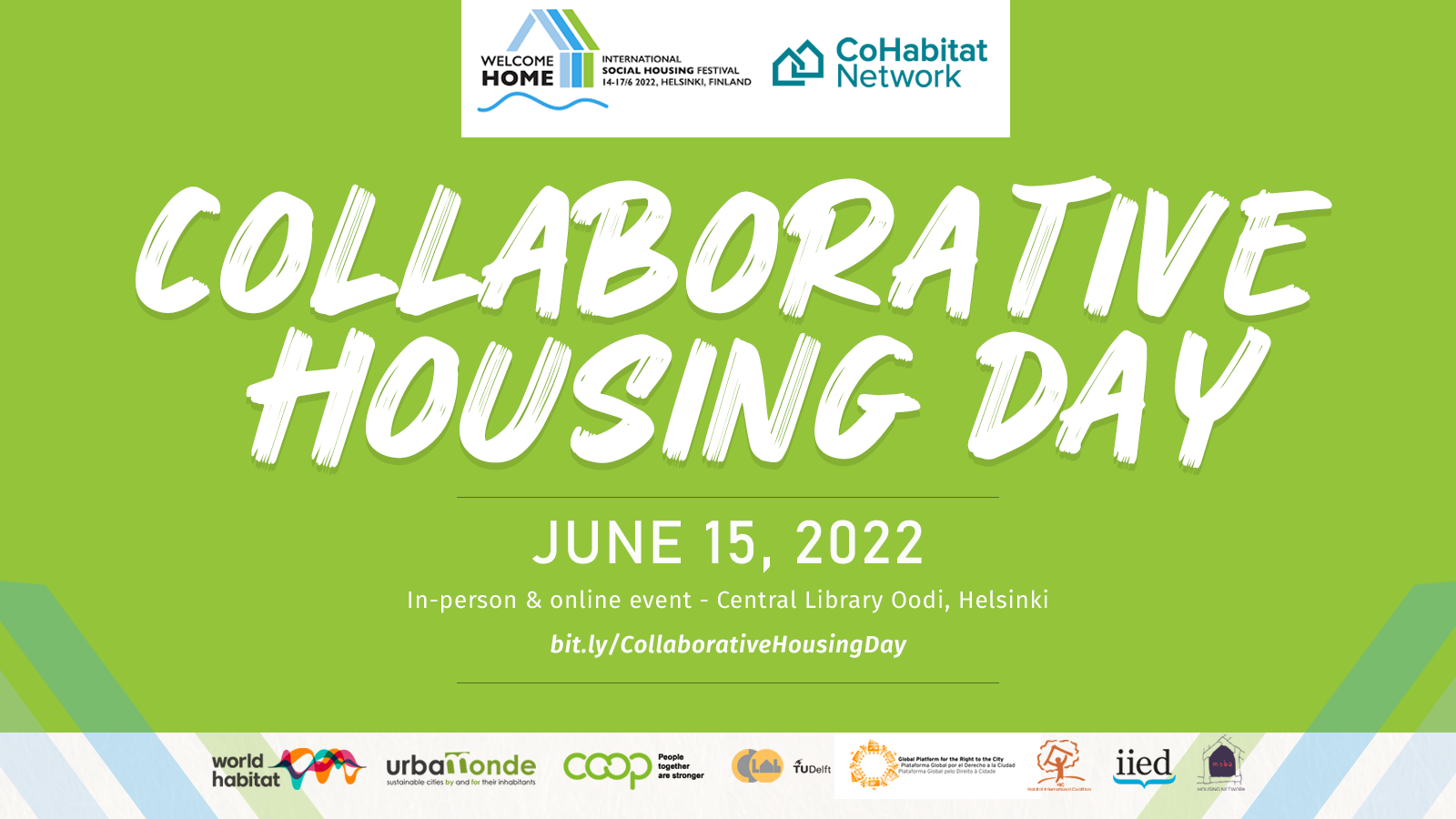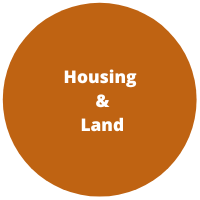Conceptual framework
HIC, in accordance with its Constitution, identifies
three lines of action in the housing rights field: its recognition, within the
legal framework which regulates housing as well as the policies and tools that
shape the actions of the diverse actors in the field; its defense, which
implies government obligations to respect and protect this right; and its full
implementation for all, independently of income level, social condition,
culture, or religious, political, sexual, or other preferences, etc.
Civil organizations working in the human rights
field usually focus their activity around promotion of their recognition and
primarily on their defense vis-à-vis the state entities responsible to
guarantee and protect their fulfillment. For HIC, this activity does not
translate into improvement of peoples’ living conditions if not paired with
active labor to materially implement these rights.
From this conceptualization derives our Coalition’s
interest in issues related to the production, distribution, and use and
maintenance of housing and other fundamental components of habitat such as
infrastructure, services, and facilities.[1]
More than one-fifth of the world population lives in
very precarious conditions or is entirely homeless. Public policies,
increasingly oriented to conceptualize housing as merchandise, and human
habitat as business, tend to exacerbate this situation, leaving millions of
families without options. These families, found throughout the planet and
especially in poor countries, are forced to self-produce their settlements and
homes, with no support and facing all types of obstacles.
In the southern countries, between 50 and 75 percent
of homes and many of the other components of habitat are produced and distributed
outside or in the margins of the market systems controlled by the private
sector and governmental financial programs. With different names and
characteristics, this phenomenon is produced in all poor countries, and even,
although on a smaller scale, in rural and urban areas of industrialized
countries.
We refer to the diverse modalities adopted by this
phenomenon in Latin America as social production of habitat, which is
the name adopted in the title of this project. Social production is understood
as all those processes which generate living spaces, urban components, and
housing, carried out under the control of self-producers and other social
agents acting without lucrative purposes. These agents may originate in the
families themselves acting individually, in informal organized groups, in
social enterprises such as housing cooperatives and associations, or in NGOs,
professional groups, or even charity groups which respond to emergencies and
the needs of vulnerable groups. Self-management modalities range from
spontaneous individual self-production, to collective production implying a
high organizational level of participants, and in many cases complex processes
of production, negotiation, and management of other habitat components.
This production form is found in both the rural and
the urban spheres, and implies varying levels of social participation in the
diverse housing production phases: planning, construction, distribution, and
use. It begins from the conceptualization of housing and habitat as a process
and not as a finished product; as a social and cultural product and not
merchandise, and as the act of inhabiting and not mere object of exchange.
It is therefore a complex phenomenon expressed in
multiple productive modalities which range from improvement and expansion of
existing housing and new housing production to neighborhood improvement and the
production and management of large urban complexes.
Recognizing the difficulty to denominate this
phenomenon under one common term in all regions, we feel that the concepts
expressed here allow us to establish a common base on which to initiate an
inter-regional discussion process to help us “synchronize” its
conceptualization and articulate a joint plan for its promotion, defense, and
consideration in public policies and in the implementation of adequate
instruments for its strengthening and future development. The strategic role
social production of habitat can have in the struggle to overcome poverty and
the growing deterioration of the social fiber constitutes a solid foundation on
which to build said process.
Social production of habitat, especially that
supported by collective self-managed processes incorporating training,
participative responsibility, organization, and active solidarity among inhabitants, contributes to strengthen
community practices, direct democratic exercise, participants’ self-esteem, and
more vigorous social co-existence.
The growth of organized inhabitants’ management
capacity and their control over habitat production processes; the channeling of
resources from savings, credit, and subsidies within the communities in which
the actions unfold, and the subsequent strengthening of popular market
circuits, contribute in turn to strengthen the economies of individual participants,
the neighborhood community in which they are located, and the popular sectors
as a whole. Investment in improvement of an informal settlement is
essentially investment in improving the productivity of the people and the
urban economy as a whole. Placing the —
collective and individual — human being at the center of their strategies, work
methods, and actions, puts into march innovative processes with profound
content and impact toward transformation of reality.
[1] Aspects
related to access to potable water, sanitation, energy, transport, education,
health, basic goods supply, access to work, security, recreation, religious
centers, etc.


